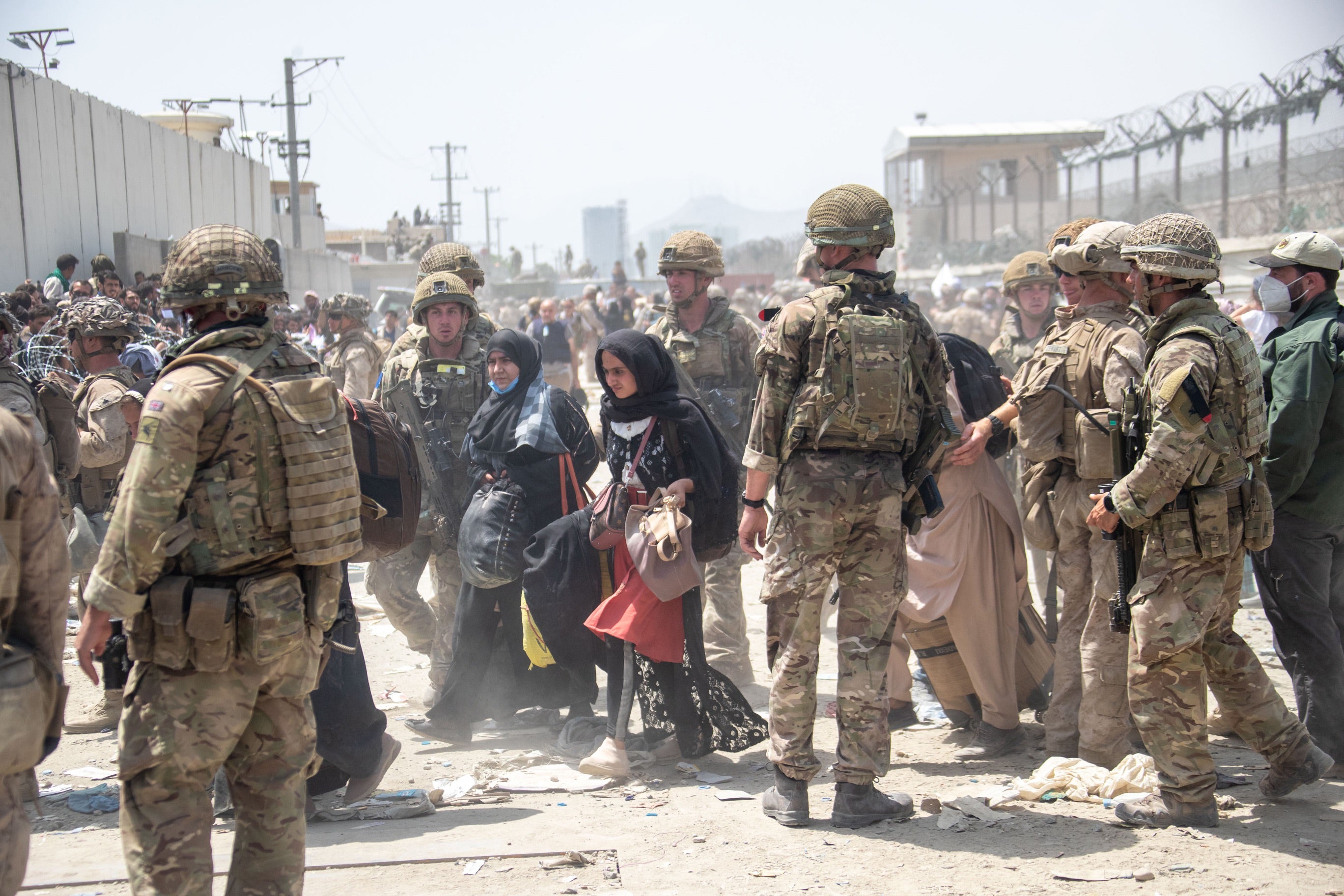We owe an undeniable debt to the Afghans who worked with British forces
Editorial: The Afghans are far from their former homes and may never be able to return to them

Such has been the recent relentless focus on the return of David Cameron, Suella Braverman’s sacking and the legality of the Rwanda plan that the people obviously most concerned with the future of the asylum system – the refugees themselves – have almost been forgotten.
While judges and politicians argue about public opinion and international law, perfectly genuine refugees who’ve helped the UK in its moment of need have been left to languish in appalling conditions. These The Independent reports on today – Afghan nationals who worked for crown forces in the long, pitiless war against the Taliban, the worst enemy on Earth.
They have had their claims for asylum recognised under the Afghan relocations and assistance policy (Arap) as allies of Britain, who worked in “exposed or meaningful roles”. They risked their lives for Britain, and would certainly have been tortured and perished had they been left behind. Britain has given them shelter, but little else. They have been forgotten, and they do not deserve that.
When the Arap scheme was launched as part of “Operation Warm Welcome”, British forces had just hurriedly evacuated from Kabul, and the emotional and moral urge to help Afghan comrades was powerful. The then prime minister Boris Johnson declared: “We owe an immense debt to those who worked with the armed forces in Afghanistan and I am determined that we give them and their families the support they need to rebuild their lives here in the UK.”
He was right then, but a little over two years on the neglect has set in. Hundreds of these refugees have been rescued from Pakistan, where they faced deportation to Afghanistan, were placed in military bases around the country, and seemingly forgotten about.
One such base near Loughborough is often used by the Ministry of Defence for military training and conferences, and is currently serving as a holding point for Afghans. Families wait there for weeks before being moved on to yet another base or, if they are lucky, to more permanent armed forces accommodation.
While conditions in these bases are better than some of the notorious former camps in which people have been housed in recent years, they are far from ideal. The Afghans cannot leave and they have no access to medical care.
They must subsist on universal credit and have no home from which to seek work and build the new lives they were promised. Victoria Atkins, then the minister responsible and now the health secretary, promised that the Arap would help. “Security of access to healthcare and the opportunity of education are the foundation upon which those resettled to the UK can build,” she said. Now that Ms Atkins is in the cabinet and in charge of the NHS she is in a better position to make sure those promises are kept.
The immigration debate is hardly new, and far from resolved. It has been going on for decades, in one form or another, and reached a level of unprecedented virulence during and after the 2016 EU referendum.
However, almost everyone agrees that Britain should give shelter to those in danger of losing their lives, and should offer special help to those who were prepared to give their all as British friends and allies.
It is sometimes argued that “we should look after our own first”; but we certainly owe a debt to the Afghans who worked with the British forces – and, in any case, housing and public services are not a zero-sum game.
Those who are homeless or in temporary accommodation, for whatever reason, are deserving of assistance, and the state has a duty to provide for them as best it can.
Once someone has been granted refugee status and is on the path to becoming a permanent resident in Britain, and perhaps in time a British citizen, they should not be simply dumped in a barracks somewhere and left to their own devices.
The Afghans are far away from their former homes, and they may well never be able to return to them. They are here because we were there, and that central fact must never be forgotten.






Join our commenting forum
Join thought-provoking conversations, follow other Independent readers and see their replies
Comments